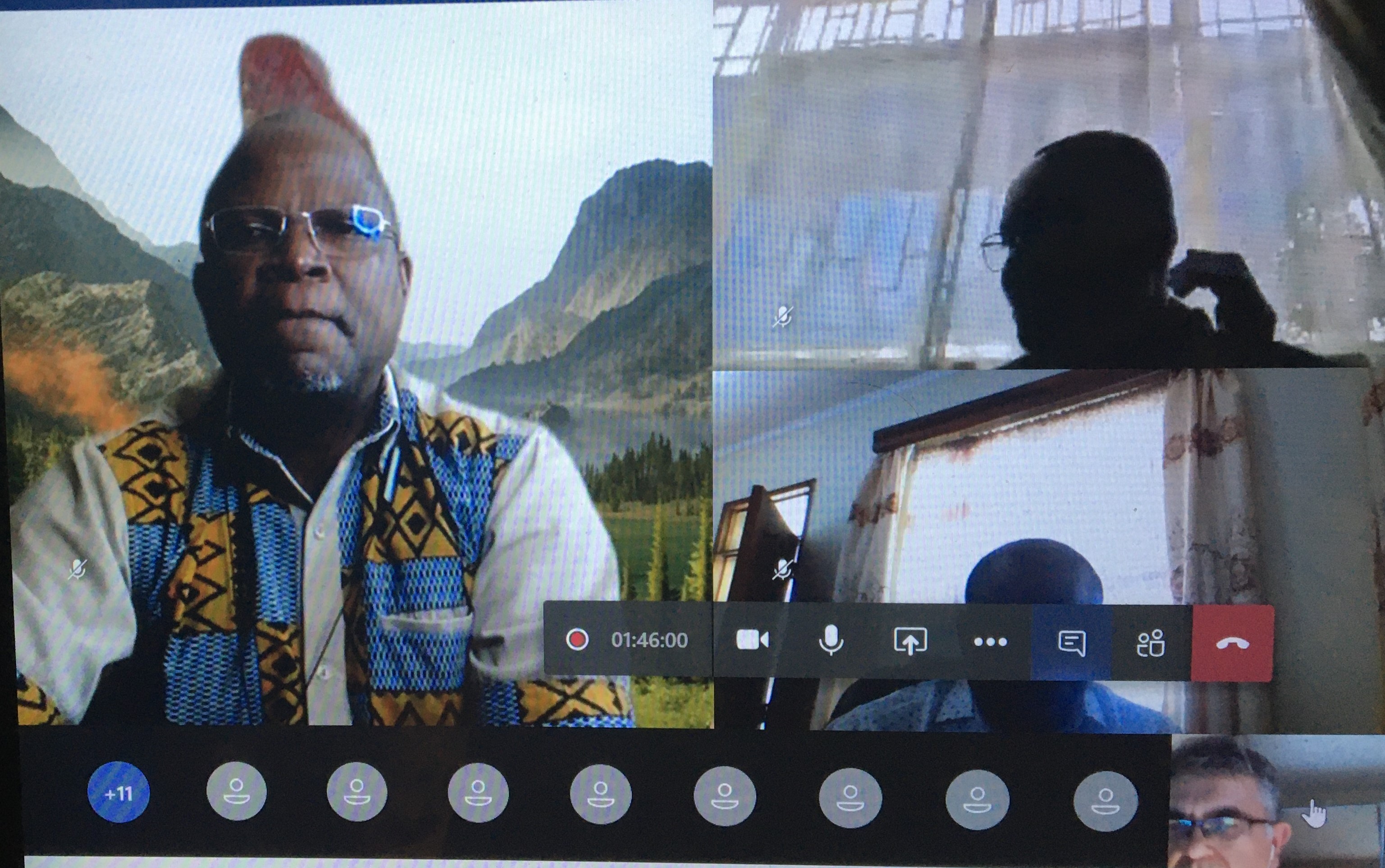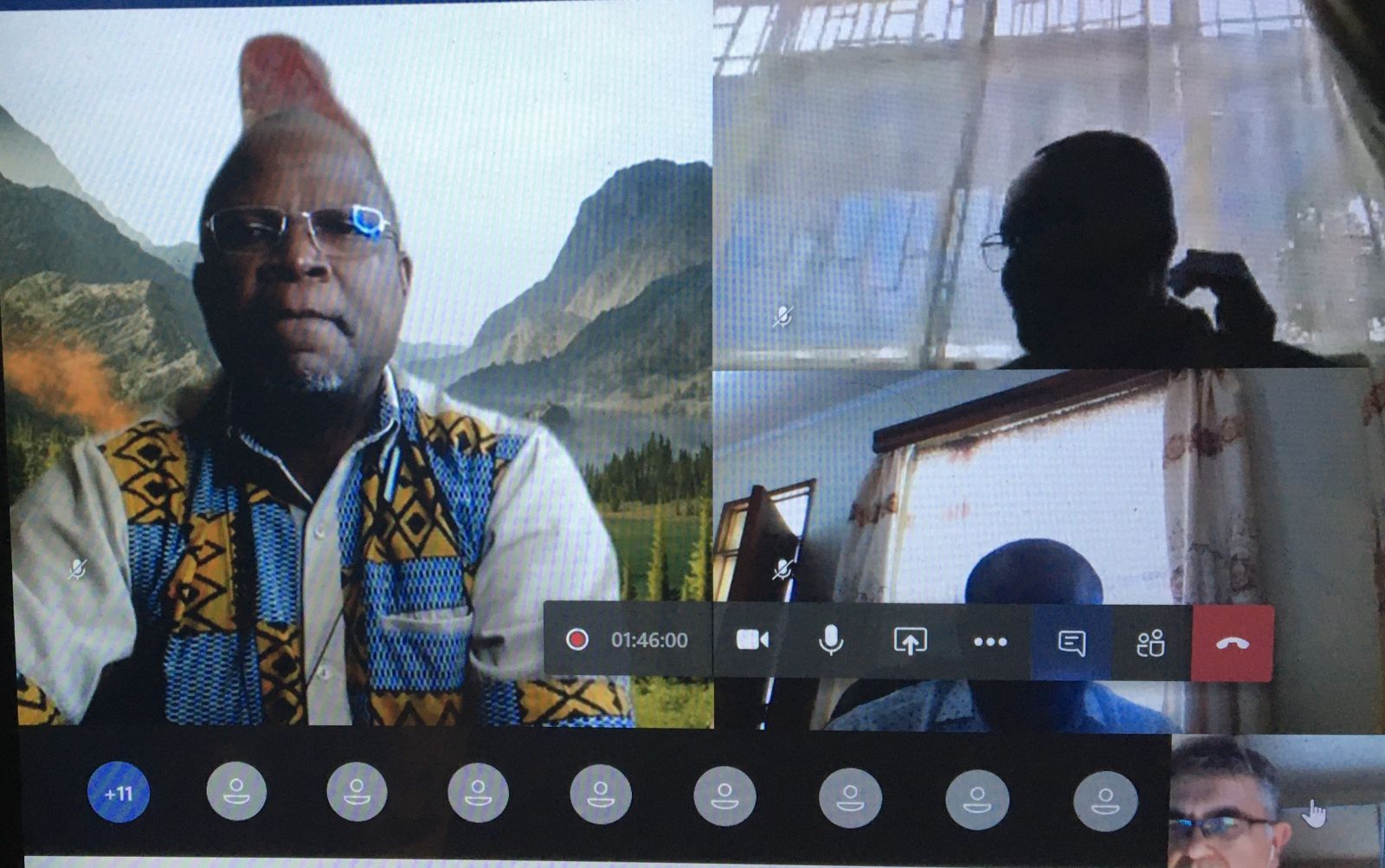ISTC and NACOSTI Organize a Webinar on Nuclear Governance in Africa

 On 25 August 2020, ISTC and the Kenyan National Commission for Science, Technology and Innovation (NACOSTI), which is a Partner of ISTC, organized a webinar for nuclear experts from Eastern and Southern African countries, participants in the EU-funded project MC 5.01 15B: Support to Southern African States in Nuclear Safety and Safeguards. The webinar, entitled Benefits from Interregional Dialogue on Nuclear Governance: Africa And Central Asia, was attended by Dr. Messaoud Baaliouamer, Executive Secretary of the African Commission on Nuclear Energy (AFCONE), Dr. Arthur Koteng, Deputy Director of the Nuclear Regulatory Authority of Kenya, the leaders and members of the African Nuclear Generation in Nuclear and its Kenyan chapter, experts from government agencies, industries, and academia.
On 25 August 2020, ISTC and the Kenyan National Commission for Science, Technology and Innovation (NACOSTI), which is a Partner of ISTC, organized a webinar for nuclear experts from Eastern and Southern African countries, participants in the EU-funded project MC 5.01 15B: Support to Southern African States in Nuclear Safety and Safeguards. The webinar, entitled Benefits from Interregional Dialogue on Nuclear Governance: Africa And Central Asia, was attended by Dr. Messaoud Baaliouamer, Executive Secretary of the African Commission on Nuclear Energy (AFCONE), Dr. Arthur Koteng, Deputy Director of the Nuclear Regulatory Authority of Kenya, the leaders and members of the African Nuclear Generation in Nuclear and its Kenyan chapter, experts from government agencies, industries, and academia.
The keynote speaker was Dr. Timur Zhantikin, Director of Kazakhstan Nuclear Power Plant, LLP, who headed - until recently - the Committee on Atomic Energy Supervision and Control, the nuclear regulator of Kazakhstan. In his presentation: Lessons Learned from Practical Implementation of Nuclear Safety and Security Measures, he shared glimpses from the remarkable achievements in nuclear governance of Kazakhstan, one of the world’s biggest uranium producer and exporter, whose experience has significance worldwide, including in Africa.
In his greetings to the participants Prof. Dr.Walter Oyawa, NACOSTI Director General, referred to the role NACOSTI plays in developing priorities in scientific, technological and innovation activities in Kenya, and in asserting the leading position of the country in that respect, regionally and in the African continent.
In his greeting remarks the ISTC Executive Director David Cleave underlined that ISTC is proud of its cooperation with African partners and with partners in Central Asia, and through its projects and activities works to bridge the communities of nuclear professionals and to encourage the region-to-region collaboration in the field of nuclear safety and safeguards.

